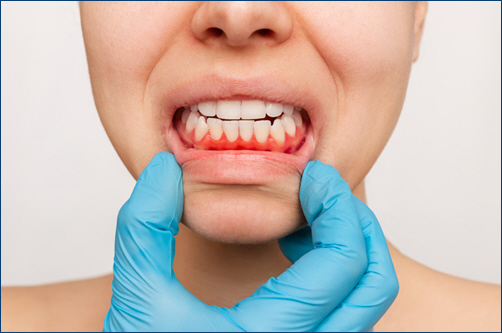Preventing Gum Disease: Essential Dental Hygiene Tips
Gum disease, also known as periodontal disease, is a common oral health issue that can lead to serious complications if left untreated. The foundation of preventing gum disease lies in maintaining excellent dental hygiene. By adopting effective oral care practices, you can significantly reduce your risk of developing gum disease and maintain a healthy smile.
Daily Brushing
- Proper Technique: Brushing your teeth at least twice a day is crucial for removing plaque and bacteria that contribute to gum disease. Use a soft-bristled toothbrush and fluoride toothpaste. Brush for at least two minutes each time, ensuring you cover all surfaces of your teeth and gums.
- Correct Positioning: Hold your toothbrush at a 45-degree angle to your gums. Use gentle, circular motions to clean the tooth surface and gumline. Avoid aggressive brushing, which can damage your gums and enamel.
Flossing
- Daily Routine: Flossing is an essential step in your dental hygiene routine that helps remove plaque and food particles from between your teeth and under the gumline, areas that a toothbrush cannot reach. Floss daily to prevent plaque buildup that can lead to gum disease.
- Technique Matters: Use about 18 inches of dental floss, winding it around your middle fingers and holding it tightly between your thumbs and index fingers. Gently slide the floss between your teeth, curving it around each tooth and making a C-shape to clean below the gumline. Avoid snapping the floss, as this can injure your gums.
 Regular Dental Checkups
Regular Dental Checkups
- Professional Cleanings: Regular visits to your dentist are crucial for preventing gum problems. During these appointments, your dentist or hygienist will perform professional cleanings to remove tartar buildup, which cannot be eliminated through brushing and flossing alone. These cleanings help prevent gum disease and other oral health issues.
- Early Detection: Routine checkups allow your dentist to monitor your gum health and identify any early signs of gum disease. Early intervention is key to preventing the progression of periodontal disease and avoiding more severe complications.
Healthy Lifestyle Choices
- Balanced Diet: Eating a diet rich in fruits, vegetables, whole grains, and lean proteins supports gum health. Nutrients such as vitamin C and calcium are essential for maintaining healthy gums and teeth. Avoid excessive sugary foods and drinks, as they can contribute to plaque formation and gum disease.
- Avoid Smoking: Smoking is a significant risk factor for gum disease, as it impairs gum tissue healing and reduces the effectiveness of your immune response. Quitting smoking can improve your gum health and overall oral hygiene.
Maintaining excellent dental hygiene is vital in preventing gum disease and ensuring long-term oral health. By adopting a consistent brushing and flossing routine, attending regular dental checkups, and making healthy lifestyle choices, you can significantly reduce your risk of periodontal disease and enjoy a healthy, beautiful smile. Prioritize your dental hygiene to keep your gums and teeth in optimal condition.



